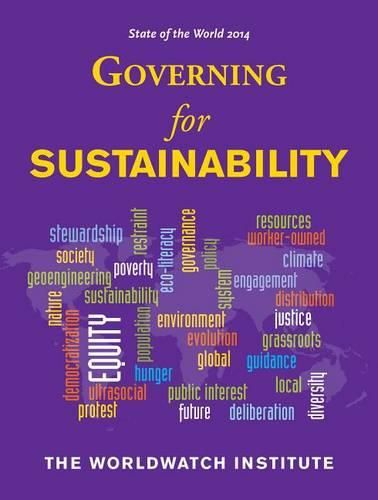Readings Newsletter
Become a Readings Member to make your shopping experience even easier.
Sign in or sign up for free!
You’re not far away from qualifying for FREE standard shipping within Australia
You’ve qualified for FREE standard shipping within Australia
The cart is loading…






Citizens expect their governments to lead on sustainability. But from largely disappointing international conferences like Rio II to the U.S.‘s failure to pass meaningful climate legislation, governments’ progress has been lackluster. That’s not to say leadership is absent; it just often comes from the bottom up rather than the top down. Action–on climate, species loss, inequity, and other sustainability crises–is being driven by local, people’s, women’s, and grassroots movements around the world, often in opposition to the agendas pursued by governments and big corporations. These diverse efforts are the subject of the latest volume in the Worldwatch Institute’s highly regarded State of the World series. The 2014 edition, marking the Institute’s 40th anniversary, examines both barriers to responsible political and economic governance as well as gridlock-shattering new ideas.
$9.00 standard shipping within Australia
FREE standard shipping within Australia for orders over $100.00
Express & International shipping calculated at checkout
Citizens expect their governments to lead on sustainability. But from largely disappointing international conferences like Rio II to the U.S.‘s failure to pass meaningful climate legislation, governments’ progress has been lackluster. That’s not to say leadership is absent; it just often comes from the bottom up rather than the top down. Action–on climate, species loss, inequity, and other sustainability crises–is being driven by local, people’s, women’s, and grassroots movements around the world, often in opposition to the agendas pursued by governments and big corporations. These diverse efforts are the subject of the latest volume in the Worldwatch Institute’s highly regarded State of the World series. The 2014 edition, marking the Institute’s 40th anniversary, examines both barriers to responsible political and economic governance as well as gridlock-shattering new ideas.